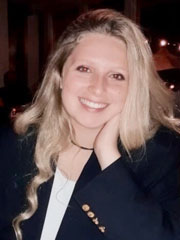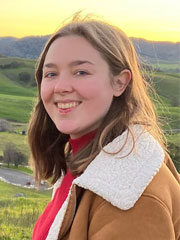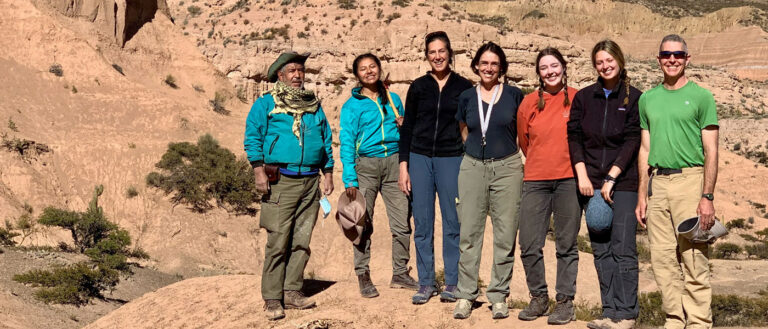Years: Rising fourth-years
Majors: Environmental Geology and Environmental Studies
Two students double majoring in environmental geology and environmental studies at Case Western Reserve University recently had the experience of a lifetime conducting fieldwork in a remote area of southern Bolivia.
Rising fourth-year students Michaela Galarza and Sara Olmsted—along with CWRU professors Beverly Saylor and Darin Croft, researchers from Bolivia and others from the University of Michigan—spent two weeks exploring the terrain and collecting samples near the Andes Mountains. Their analyses focused on the geology and paleoenvironment of a site called Nazareno.
Croft said they’ve previously collected fossils there—and they found additional fossils during this trip, including a tortoise—but very little research has been done on the site’s geology, age, or ancient environment. During the trip, they collected a variety of geological samples that will provide preliminary data for submitting a larger National Science Foundation grant focused on the site.

“[Our work] in Bolivia looked at unraveling the story behind its geologic formation and narrowing down the [timeline] of when the Andes [Mountains] rose,” Olmsted explained. “We collected fossils and samples to be age dated—as well as samples to analyze for ancient pollen.”
As they conducted their fieldwork, they scaled peaks, ate lunch at the edge of small cliffs, spent days hiking and following paths only goats had traveled, wound their way through thousands of huge cacti and traveled up dry river beds. At night, they stargazed and were captivated by shooting stars.
“There is really something special about being able to study a place rarely seen by other humans,” said Galarza. “I am so grateful that being a CWRU student allowed me to have this opportunity.”
Galarza—who is involved at CWRU as a member of the Delta Gamma Sorority—said she’s excited to see the outcome of their work—and she hopes that it provides some answers to help our ailing planet. She wants to do all she can to turn back the tide of climate change and degradation so future generations can have the opportunities she had when she was young, including weekends spent exploring the untamed wilderness near her home. There, she’d play in the creek that flowed alongside it and weaved through the forest of bamboo that separated her yard from the neighboring nursery.
“Being outside and getting dirty was the best part of childhood,” she reminisced. “It was a privilege to grow up with access to nature. I want all children to have the opportunity I did. The reality is that future generations will be less likely to have access to a healthy, wild environment.”

For Olmsted—a Sustainability Ambassador, co-captain of the Sustainability House, and secretary of CWRU Geological Society—the trip to Bolivia initially seemed to be out of the realm of possibility.
Olmsted said she’s always been nervous to ask professors about joining research projects, and the COVID-19 pandemic only exacerbated the issue because there were limited in-person opportunities.
“I spent many semesters stressing over my lack of experience in research when all along I could have asked practically any faculty in the Department of Earth, Environmental and Planetary Sciences and they would have been happy to have undergrads to help out,” Olmsted said.
“I learned that asking is the hardest step,” she continued. “There are truly so many people at CWRU who want to help and support you, all you have to do is ask.”
Upon completing their degrees, both students are eager to work in the field. Galarza may continue her education as a master’s student or find work in the environmental field, and Olmsted hopes to pursue her master’s in environmental science.
Learn more about the Department of Earth, Environmental and Planetary Sciences and discover its undergraduate and graduate programs.

